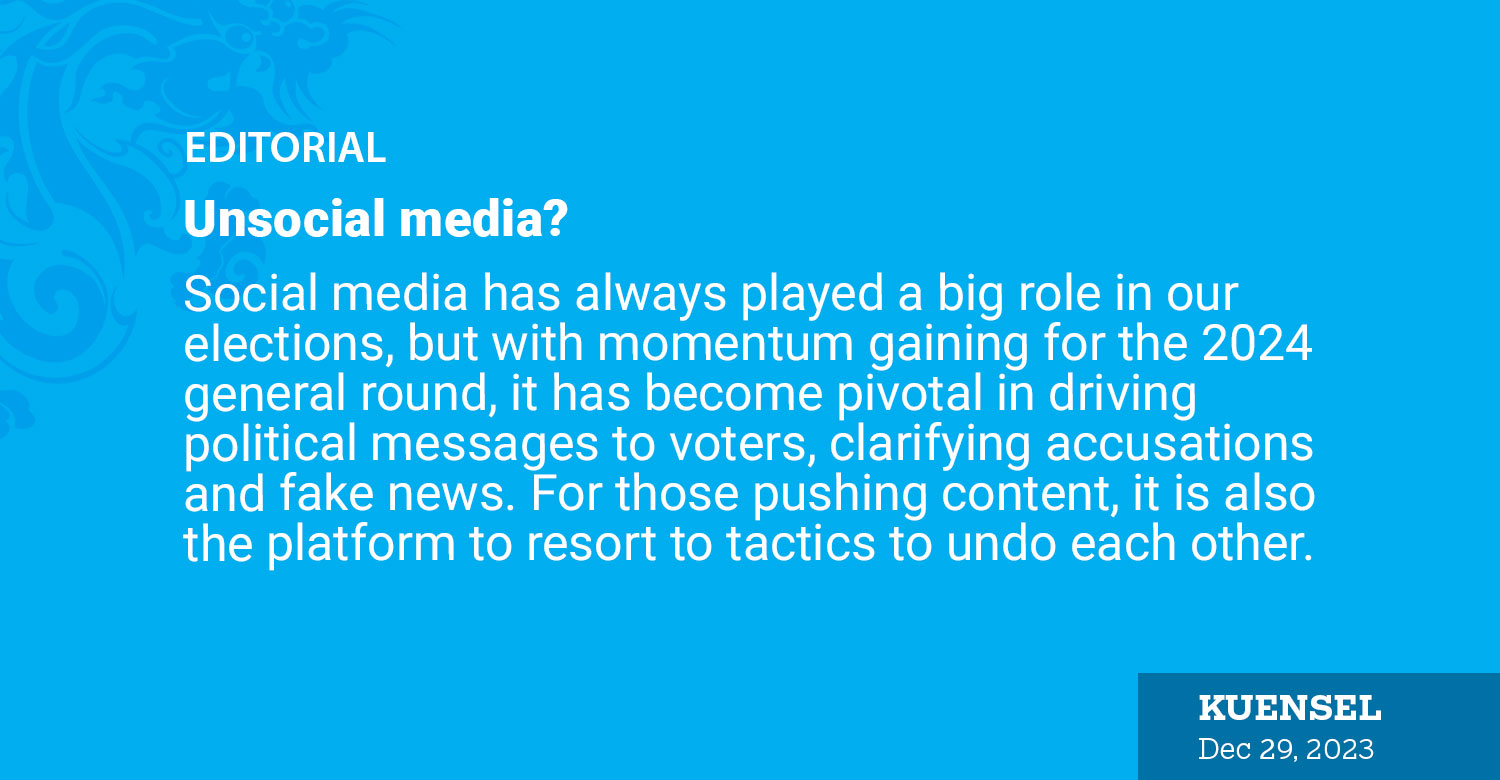Social media has always played a big role in our elections, but with momentum gaining for the 2024 general round, it has become pivotal in driving political messages to voters, clarifying accusations and fake news. For those pushing content, it is also the platform to resort to tactics to undo each other.
Accessibility and affordability of social media has provided candidates and supporters a low-cost opportunity to communicate and compete, besides making themselves known. If it was Facebook in the past, it is apps like TikTok, which allows users to create, watch and share short videos, shot even on a mobile phone, has overtaken Facebook. Many say, it is from TikTok that most Bhutanese get their information of the upcoming general round, whether it is short clips of the debates, common forums or memes of the debates.
Resorting to social media is not an issue. In fact, party leaders, their media team or supporters are leveraging the new media to connect with voters. It is effective and the reach is far greater than the mainstream media. However, it is the content that could cause the damage. Worst, when it reaches people who cannot differentiate fake from real, or the gullible voters who will not question the contents pushed to their phones or homes.
Social media is called the echo chamber. It has an echoing effect by amplifying messages. If voters cannot read, they can watch it. Helping reach out verified information is a boon, the bane is when sharing contents without fact-checking that could affect public perception of candidates or parties.
In the past few days, we saw how the People’s Democratic Party’s North Thimphu candidate was trying to clarify fake news about the anti-graft commission investigating him. In another short video, the President of the Bhutan Tendrel Party was accused of bribing voters with carpets. Besides the direct accusation and attempts to malign a candidate, there are enthusiastic supporters who edit, doctor and make debates and speeches out of context to fool the general public.
Such contents allow misinformation to spread quickly and easily. From the warnings the Office of the Media Arbitrator is issuing, we can conclude that many are misusing social media platforms. All warnings issued are related to what was said or shared on social media.
There are hundreds of groups on social media apps like WeChat, WhatsApp besides TikTok that have become the source of misinformation. A few members of the wrong party or group leak information, based on which the OMA is issuing warnings. If election commission officials gain access to all the social media groups, like someone said, we will have no candidates to contest in the 2024 elections. This may be an exaggeration, but it does indicate how social media is being misused and abused.
Contesting to govern the country for another five years or represent the people of a constituency, political parties or candidates should not resort to social media to gain unfair advantages. Ethical standards are expected of them or their excited supporters, some of whom are having fun creating fake news or editing content of mass media to fool voters.


